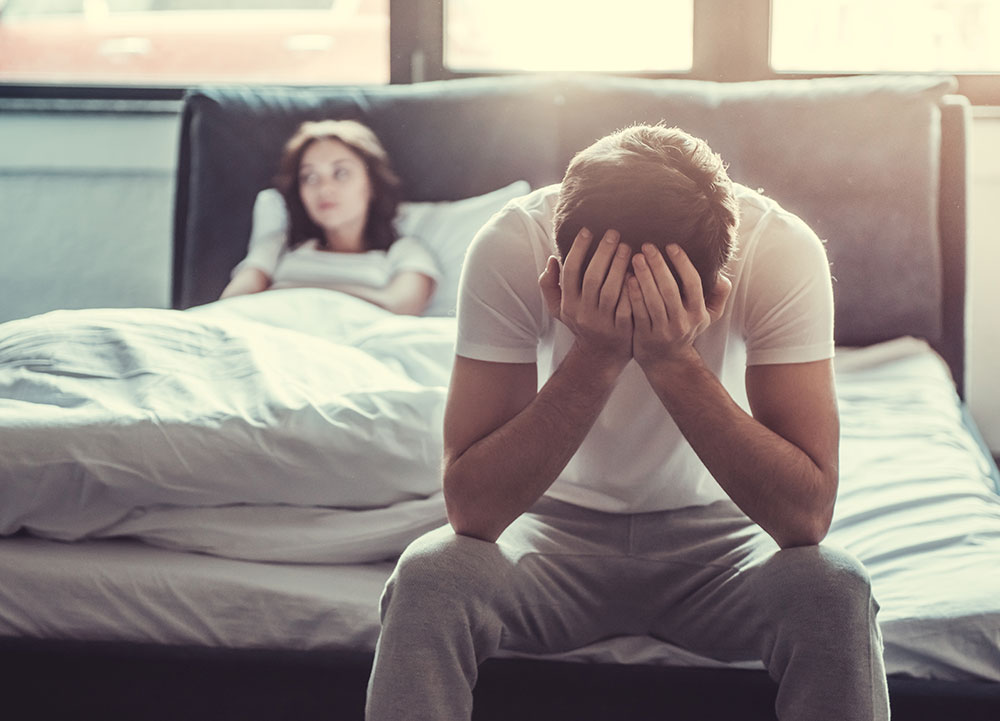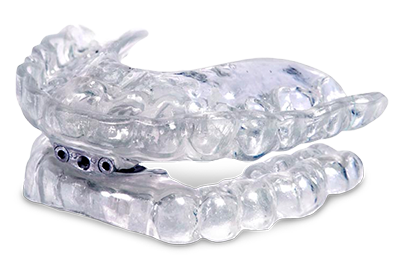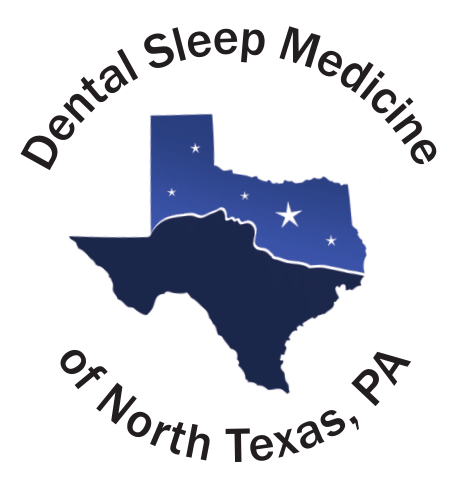Is Your Sleep Apnea Being Misdiagnosed as ADHD?

With 50 to 75 percent of those with Attention Deficit Hyperactivity Disorder (ADHD) experiencing concurrent sleep issues, it’s crucial to understand the connection between ADHD and sleep problems. The challenge lies in distinguishing between the two, as ADHD is frequently misdiagnosed as sleep apnea and vice versa due to shared symptoms like fatigue, disinterest, and lack of motivation.
Dr. Scott Clinton, a sleep dentist in Dental Sleep Medicine at North Texas, advocates for clarity through comprehensive assessments. Recommending a sleep study, he brings years of expertise to Ellis County, TX, and neighboring areas, including Red Oak, Midlothian, Maypearl, and Ennis. For personalized guidance and accurate diagnoses, call our Waxahachie office at (972) 737-5337 to ensure tailored treatment plans that address the nuanced interplay between ADHD and sleep apnea.
The Link Between Sleep Apnea and ADHD
The relationship between these two conditions is multifaceted and not always straightforward, requiring a nuanced exploration.
- Studies on Sleep Apnea and ADHD: Ongoing research has unveiled a significant correlation between sleep apnea and ADHD. Studies suggest that individuals with ADHD are at a higher risk of experiencing sleep apnea and vice versa, highlighting a potential bidirectional relationship.
- Shared Symptoms and Comorbidity: The overlapping symptoms of sleep apnea and ADHD, such as daytime fatigue and difficulties concentrating, contribute to the challenge of distinguishing between the two. This shared symptomatology often leads to misdiagnoses and underscores the importance of comprehensive evaluations.
- Impact of Sleep Disruptions on ADHD Symptoms: Disruptions in sleep patterns associated with sleep apnea can exacerbate ADHD symptoms. Sleep deprivation and fragmented sleep may amplify existing attention and impulse control challenges, intensifying the overall impact on daily functioning.
- Neurological and Cognitive Factors: The intricate connection between sleep apnea and ADHD may involve shared neurological and cognitive factors. Hypoxia and sleep fragmentation, common in sleep apnea, could potentially influence cognitive processes and attention regulation, contributing to ADHD-like symptoms.

Shared Symptoms Between ADHD & Sleep Apnea

Accurately diagnosing either ADHD or sleep apnea becomes challenging due to the shared symptoms between the two conditions. Recognizing these signs is crucial for understanding the nature of the challenges faced by individuals, whether it be yourself or your child. Common symptoms associated with ADHD include:
- Irritability
- Lack of focus
- Impulsivity
- Disorganization
- Easily distracted
- Forgetfulness
These symptoms, however, aren’t exclusive to ADHD and can also stem from sleep apnea and insufficient sleep, often leading to potential misdiagnoses. To ensure a comprehensive and precise understanding of your health, we strongly recommend undergoing a sleep study. This diagnostic approach will provide doctors with a more complete and accurate picture, facilitating a more nuanced and informed diagnosis and subsequently guiding appropriate treatment strategies.
Misdiagnoses Happen: Why You Should Undergo a Sleep Study
Obstructive sleep apnea (OSA) occurs when the muscles at the back of the throat relax and don’t hold your airway open as you breathe in your sleep. This disrupts the flow of oxygen, wakes you up as soon as you stop breathing, and robs the body of the sleep it needs.
In 2013, Dr. Lauri Blesch and scientist Sarah Breese published the experience of a young man of healthy weight who was reportedly getting more than eight hours of sleep each night, yet felt tired and found it hard to focus during the day.
He was told he had ADHD and given medication, but five months later the patient returned complaining of still feeling tired. After being referred to a sleep specialist, it was found that the young man suffered from sleep apnea. This was verified after a second evaluation ruled that he did not have adult ADHD.
Because symptoms can be so similar, initial misdiagnoses can happen. If some ADHD symptoms don’t reflect your own experience, you may want to sign up for a sleep study.

A CPAP Alternative Can Help

If the cause of the symptoms is an obstructed passageway, a CPAP alternative — such as an oral sleep appliance — can help retain the normal flow of oxygen into your lungs and alleviate the problems that are causing you to lose sleep. Which solution is best will depend on the severity of your sleep apnea, but oral appliances are often preferred to CPAP by patients with mild-to-moderate OSA.
We understand some patients can suffer from both sleep apnea and ADHD. In cases such as these, a CPAP or CPAP alternative can help to at least attenuate many of the problems associated with attention deficit disorder, including tiredness and impatience.
Lifestyle Tips for Sleep Apnea and ADHD
Adopting healthy lifestyle practices is pivotal in managing sleep apnea and ADHD on a day-to-day basis.
Healthy Sleep Habits
- Consistent Sleep Schedule: Establishing a regular sleep routine helps regulate circadian rhythms and improves overall sleep quality.
- Optimal Sleep Environment: Creating a conducive sleep environment, including a comfortable mattress and minimal light and noise, enhances the likelihood of restorative sleep.
ADHD-Friendly Routines
- Structured Daily Activities: Organizing tasks and activities into a structured routine provides a sense of predictability, reducing stress for individuals with ADHD.
- Effective Time Management Strategies: Tools such as planners, reminders, and breaking tasks into smaller, manageable steps can aid in time management, addressing challenges associated with ADHD.

Frequently Asked Questions
Can treatment improve my sleep apnea symptoms?
Yes! Receiving treatment can help alleviate your sleep apnea symptoms. If sleep apnea is left untreated, it can lead to serious health consequences such as heart disease, diabetes, and high blood pressure. When you receive treatment, you’re gaining your sleep quality back. Your body and mind will start getting the rest they need, which can strengthen your immune system.
What is a sleep study?
When you undergo a sleep study a sleep specialist monitors your vitals during sleep including heart rate, brain activity, and oxygen levels. After the study is conducted and a diagnosis is made, your sleep dentist will use your diagnosis to find the best treatment for you and your needs.
How can I be sure that my ADHD symptoms aren't caused by sleep apnea?
Since ADHD and sleep apnea can have similar impacts on our daily lives, it’s valuable to determine if a sleep disorder is contributing to ADHD symptoms. Sleep disorders are common in people diagnosed with ADHD and may be reliably treated once identified. By getting a sleep study, you can establish whether you suffer from sleep apnea and begin to treat the condition.
With treatment for your sleep apnea, you may find that your ADHD symptoms are less pronounced in your day-to-day experiences. Addressing your sleep apnea may improve concentration, reduce fatigue, and improve your mood and temperament. Some signs of what was diagnosed as ADHD may resolve completely if sleep apnea was the cause all along.
Is my ADHD treatment contributing to my sleep apnea or other sleep disorders?
The stimulant medications often used to treat ADHD can negatively affect your ability to get quality sleep. You may experience difficulty falling asleep in the evenings or an inability to stay asleep through the night. If sleep apnea is reducing the quality of your sleep, these medications may worsen health outcomes and make it impossible to get a good night’s rest.
Talk to your doctor if you feel like your medication regimen is disrupting your sleep schedule. They may recommend a change in medication or dosage to promote restful nights. Sometimes, a simple change in the time of day that you take your medication can have significant benefits for sleep regularity.
Dr. Clinton Can Help You Regain Your Sleep Back
Unfortunately, it’s common for sleep apnea to be misdiagnosed as ADHD. This can lead to the wrong treatment and prescription which will not only fail to solve your problems but could negatively impact your health even further. At Dental Sleep Medicine, Dr. Clinton can provide you with the treatment you need to help you gain your sleep back.
If you would like to learn more or would like to know how to schedule a sleep study, please give us a call at our Waxahachie office today at (972) 737-5337 or use the online form below to reach out to us by email. We proudly serve new and existing patients near the South Dallas area, such as Red Oak, Midlothian, Maypearl, and Ennis, TX.
